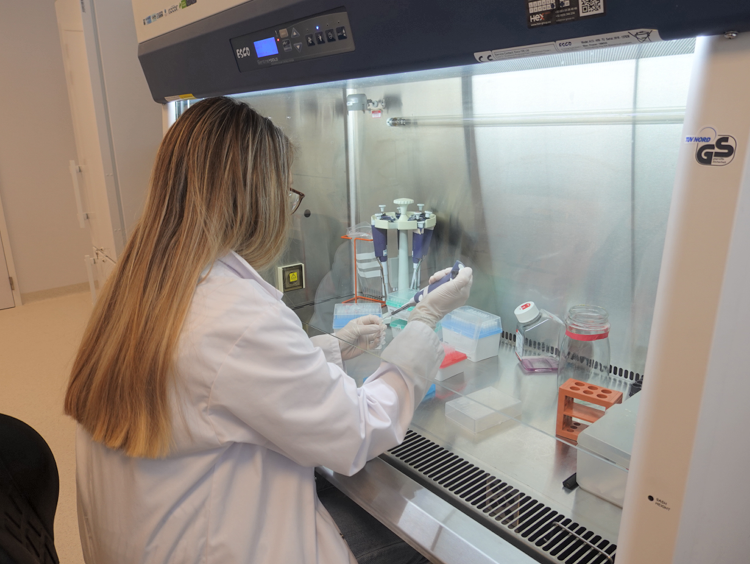Health problems
Chronic lymphoid leukaemia (CLL)

Chronic lymphoid leukaemia (CLL) is a type of blood cancer that affects the lymphocytes, a type of white blood cell that is essential to the immune system. When this disease is present, abnormal lymphocytes progressively build up in the blood, the bone marrow and sometimes in the lymph nodes. This disturbs the normal production of blood cells.
CLL progresses slowly and can remain asymptomatic for years. Potential signs include persistent fatigue, frequent infections, anaemia, swollen lymph nodes or enlarged spleen and unexplained weight loss.
Medical monitoring is essential to prevent the disease from progressing and to determine the right moment to initiate any treatment.
The CLL diagnosis is based on:
- Blood tests: to detect any abnormal increase in lymphocytes and any blood cell abnormalities.
- Biopsy: an analysis of the bone marrow or lymph nodes can be carried out if necessary
- Genetic examination of abnormal cells: to assess mutations that could influence the choice of treatment.
- Imaging: scan and/or PET scan to detect nodes or an enlarged and/or very active spleen.
The treatment options include:
- Active surveillance: for patients without serious symptoms (Alice Wolfromm podcast links).
- Prophylaxis against infections : notably a review of recommended vaccines.
- Immunochemotherapy: combination of medicines to target the cancer cells.
- Targeted therapy : treatment based on the specific genetic abnormalities of cancer cells in general, administered orally.
- Stem cell transplant and cell therapies: for aggressive or refractory forms only.
Multidisciplinary monitoring is crucial, by haematologists, infectiologists and other specialists.
Chronic lymphoid leukaemia is a disease that requires close and regular medical monitoring. Although the disease progresses slowly in many cases, it is important to rapidly signal any unusual sign such as increased tiredness, recurrent infections or abdominal pain.
Making contact with associations and support groups can be of invaluable help for the patient and patient’s family. The psycho-oncology services can also provide appropriate emotional support.
In the event of persistent fever, breathlessness or a worsening of symptoms an urgent consultation is recommended
Our department is at the forefront of chronic lymphoid leukaemia treatment thanks to a personalised approach and our international collaborations. As a member of the EuroBloodNet network and the LYSA/Filo and HOVON research groups, we provide privileged access to clinical trials and the most innovative treatment.
Also, the cell therapy laboratory (Prof. Basile Stamatopoulos and Prof. Laurence Lagneaux) is a pioneer in fundamental research to improve our understanding of the pathophysiological mechanism of this disease.
For further information:
- Pr. Virginie De Wilde
- Dr. Marie Maerevoet
- Dr. Fulvio Massaro
- Dr. Alice Wolfromm
- Dr. Tom Abrassart